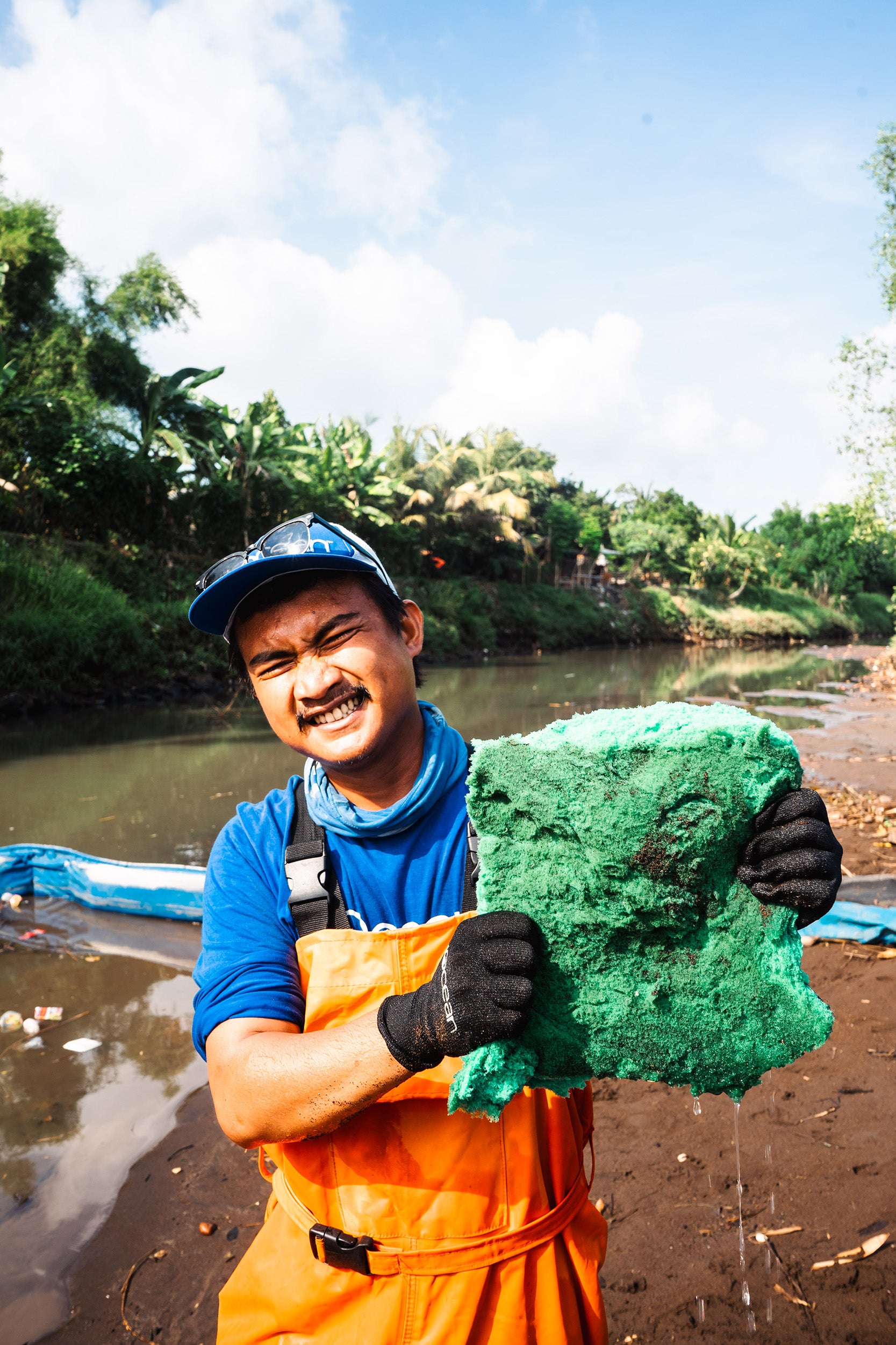5 MIN READ
11-15-2024
Microplastics, Ghost Nets, and Ceremonial WastE: The UNSEEN WASTES OF MENGENING BEACH
Ucik, 4ocean Bali Content Correspondent
When you picture Bali’s beaches, the first things that likely come to mind are golden sunsets, turquoise waters, and palm-lined shores. But as our team from 4ocean Denpasar discovered on October 29th, 2024, there’s a hidden, less glamorous side to this paradise: pollution that’s easily overlooked but impossible to ignore once you know where to look.
Our team arrived at Mengening Beach early in the morning, energized by the hope that the incoming rainy season might bring some much-needed rain to wash away the debris. What we didn’t expect, however, was the sheer volume of microplastics and other pollutants scattered across the shore. Mengening Beach, often used by local fishermen who cast their nets from kayaks, also harbors its fair share of trash—some of it man-made, some naturally occurring, but all equally harmful to the environment.

As the team began collecting waste, we quickly realized that the damage to the beach wasn’t just visible at the surface. Upon closer inspection, we found an alarming amount of microplastic—tiny plastic pieces no bigger than a grain of sand, scattered across the sand. Bottle caps, plastic forks, spoons, and even remnants of medical packaging from local hospitals were among the smallest and most dangerous items we found. These microplastics are nearly impossible to clean up completely and can easily be ingested by marine life, leading to long-term ecological damage.
"The tiny fragments can easily be ingested by animals, making them extremely dangerous," said Agus, our team captain, as he sifted through the debris. “Microplastics are some of the most difficult pollutants to remove, and their harmful effects are almost invisible until it’s too late.”
But it wasn’t just the microplastics that were a concern. The beach also had its fair share of ghost nets—abandoned fishing nets left behind by fishermen who use the beach for their daily catch. These nets, which are often made of nylon or other non-biodegradable materials, pose a significant threat to marine life. If they’re left on the shore, high tides can carry them back into the ocean, where they continue to trap fish and other marine animals, killing them or damaging the ecosystem.


Our team worked tirelessly to gather and remove these nets before they could be swept back into the water, a job made even more difficult by the strong, crashing waves that lined the beach. We had to remain vigilant, especially as we noticed some of the nets were tangled with large tree branches and debris.

Ghost Net Bracelet
Pull 5 Pounds of Trash From The Ocean With Our Ghost Net Bracelets.
Shop Now - Clean the OceanGhost Net Bracelet
Shop Now - Clean The OceanWe collected a significant amount of ceremonial waste during our cleanup—around 20% of what we collected was composed of plastic and plastic-coated materials. While we respect the local traditions, we couldn’t ignore the fact that these materials pose a danger to the beach’s ecosystem, and we knew that collecting and properly disposing of them would help preserve the beach’s beauty for both spiritual and environmental reasons.

Cleaning Mengening Beach wasn’t an easy task. Not only did we have to contend with the heavy trash and the treacherous weather conditions, but we also faced the challenge of the distance between the trash and the truck. The beach itself is quite remote, with a steep slope that makes transporting the waste a physically demanding job. It took extra effort, but as we loaded the final sacks of trash into the truck, we felt a deep sense of accomplishment.
Despite the exhaustion, we were proud of our efforts. By the end of the day, our team had removed a substantial amount of waste, and the beach was looking much better. But we couldn’t help but reflect on how much more work is needed—this cleanup was just one small step in a much bigger fight against the pollution that’s taking over Bali’s beaches.



The cleanup at Mengening Beach wasn’t just about picking up trash—it was about raising awareness. As we looked out over the now-clean beach, the beauty of the place reminded us of why we do this work. We want to preserve these places for future generations, so people can continue to experience the magic of Bali’s beaches without the threat of pollution.
We also hope to inspire others to take action. Bali’s beaches are not just for locals to enjoy, but for everyone who visits. It’s important that we all take responsibility for keeping these environments clean and healthy, whether it’s through personal actions or supporting organizations that are making a difference.




